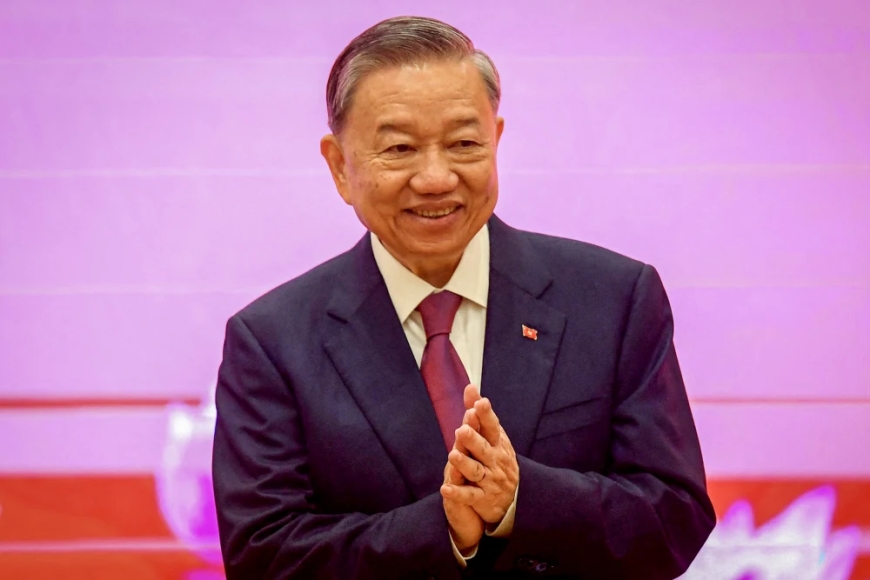In a pivotal political development, Vietnamese President To Lam has been confirmed as the new General Secretary of the Communist Party of Vietnam (CPV), assuming the country’s most influential political role. This appointment follows the death of the previous General Secretary, Nguyen Phu Trong, on July 19.
To Lam’s rise to the top of the CPV marks a significant shift in Vietnamese politics. The General Secretary is the preeminent leader in Vietnam, wielding considerable authority over both domestic policies and international relations. While Lam's new role as General Secretary was confirmed, it remains uncertain whether he will continue to serve as President concurrently.
Nguyen Phu Trong, who served as General Secretary from 2011 until his recent death, was a dominant figure in Vietnamese politics, noted for his staunch anti-corruption stance and his pragmatic foreign policy approach, known as "bamboo diplomacy." Trong's tenure was characterized by a vigorous anti-graft campaign that targeted both political and business elites, earning him both praise and controversy.
In his first address as General Secretary, Lam emphasized the need for strong party leadership in a time of transition. He vowed to uphold Trong’s legacies, particularly the anti-corruption efforts and the flexible, adaptive foreign policy strategy that has shaped Vietnam's global standing. Lam’s background as a seasoned security official, having led the Ministry of Public Security before becoming President, provides him with a robust foundation for tackling corruption and maintaining stability.
Nguyen Khac Giang, a visiting fellow at Singapore’s ISEAS–Yusof Ishak Institute, suggested that Lam’s appointment could potentially end the internal power struggles that have recently plagued the CPV. Giang noted that while significant changes in Vietnam’s strategic approach are unlikely, Lam’s relative inexperience in high-level governance means his leadership style and effectiveness remain to be seen.
“The promotion of To Lam signifies a new era in Vietnamese politics,” Giang remarked. “As the new unchallenged leader, Lam is expected to dominate the political landscape for years to come. The party will vote for a new General Secretary in 2026, and Lam’s performance will be crucial in determining his future.”
As Vietnam transitions into this new political phase, the international community will be watching closely to see how Lam navigates the complex challenges facing the country, from internal governance issues to international relations.














































